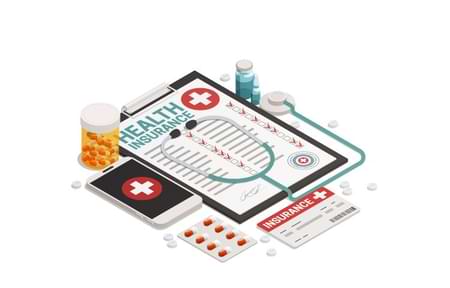Health Insurance Will Now Cover Mental Illnesses
Health Insurance Will Now Cover Mental Illnesses
Published on December 27, 2022. EST READ TIME: 4 minutes

According to the WHO, 1 in 3 Indians suffers from depression. The COVID-19 pandemic saw a substantial rise in mental health issues. And while health insurance policies cover physical ailments, it is only now that the IRDAI (Insurance Regulatory and Development Authority of India) ruled that from November 1st, 2022, mental health will also fall under the ambit of medical insurance. Health insurance plans from here on will also cover certain mental health disorders and illnesses.
The Latest Update
The Insurance Regulatory and Development Authority of Indi (IRDAI) has stated that although Alzheimer’s disease and dementia weren’t included in older comprehensive health insurance policies, it will be different from now on. In addition, insurance companies may no longer deny new policy applications from those who have a mental disorder. Mental illness and people suffering from them can now avail of mental health care through their health insurance plans. This comes as a colossal relief to many people. In a circular issued to all medical insurance companies, the Insurance Regulatory and Development Authority of India stated clearly that all insurance policies must include coverage for mental disorders and adhere to the Mental Healthcare Act's (2017) mandates without exception. The deadline for insurers to certify compliance is October 31, 2022.
What does this mean for you?
Mental health still carries a relatively large stigma with it. In the aftermath of COVID and the ensuing lockdowns, a sense of alienation and dissociation have caused mental anguish and brought to the surface many mental illnesses, especially among younger and older populations. The move to include mental health in health insurance plans, therefore, will help people actively care for their mental health as well.
What kind of illnesses are covered under Mental Health Insurance?
While there is still not enough clarity, insurance companies have been instructed to cover the following mental illnesses and disorders:
• Acute Depression:
One of the most common mental disorders, acute depression, is also called clinical depression or major depressive disorder. Feelings of intense sadness and melancholy accompany this type of depression. Symptoms include trouble sleeping, anger, feelings of self-harm, loss of interest in people and activities, fatigue and apathy.
• Bipolar Disorder:
This is a condition characterised by extreme mood swings from depressive lows to manic highs. Its symptoms include mood swings, anger, low energy, apathy and lack of motivation.
• Eating Disorders:
Some common eating disorders are binge eating, bulimia nervosa, and anorexia nervosa; patients either eat too much or frugally in such cases.
• PTSD or Post-Traumatic Stress Disorder:
This is typified by the inability or failure to recuperate from a distressing or horrifying incident. This is common with survivors of abuse (both physical and mental), soldiers and people associated with law enforcement, fire-fighters, and anyone who’s been through a traumatic event that stays with them.
• Schizophrenia:
A severe mental illness that causes individuals to lose touch or perceive reality in an aberrant manner. While the exact cause is unknown, experts suggest it is a combination of factors, including genetics, environment, and altered brain chemistry.
• Dementia:
This is classified as a psychological disorder where one’s mental acuity is severely compromised. Impairment of memory and inability to think in both abstract and concrete terms are symptoms of progressive dementia.
What illnesses will not be covered?
While IRDAI’s mandate covers many mental health disorders, there are still a few that are not included, such as:
1. Mental retardation and intellectual disabilities, including autism and Asperger’s Syndrome
2. Self-inflicted injury, which could be intentional, and attempted suicide
3. Complications relating to drug and alcohol abuse
How will mental illness coverage work?
Just like physical ailments, hospitalisation of 24 hours or more and OPD costs will also be covered for mental illnesses. But remember to discuss each aspect in detail with your insurance provider, particularly when thinking about senior citizen health insurance policies.
Conclusion
The IRDAI’s directive to insurance providers to cover certain mental illnesses is a step in the right direction. While more updates are awaited clarifying the scope and extent of this coverage, this measure ought to bring relief to many people suffering from mental illnesses. Remember to check what’s covered and put more emphasis on the exclusions in your Mediclaim policy before you make up your mind to buy one.
Disclaimer: The above information is for illustrative purpose only. For more details, please refer to policy wordings and prospectus before concluding the sales.
RELATED ARTICLES
How mindfulness apps can benefit your mental health?
Things to Know About Mental Health Coverage
Mental Health of Children – All You Need to Know
How Does Raising Mental Health Awareness Help
Can Physical Therapy Improve A Patient’s Mental Health?










 Health Insurance
Health Insurance  Travel Insurance
Travel Insurance  Car Insurance
Car Insurance  Cyber Insurance
Cyber Insurance  Critical Illness Insurance
Critical Illness Insurance
 Pet Insurance
Pet Insurance
 Bike/Two Wheeler Insurance
Bike/Two Wheeler Insurance  Home Insurance
Home Insurance  Third Party Vehicle Ins.
Third Party Vehicle Ins.  Tractor Insurance
Tractor Insurance  Goods Carrying Vehicle Ins.
Goods Carrying Vehicle Ins.  Passenger Carrying Vehicle Ins.
Passenger Carrying Vehicle Ins.  Compulsory Personal Accident Insurance
Compulsory Personal Accident Insurance  Travel Insurance
Travel Insurance  Rural
Rural 











